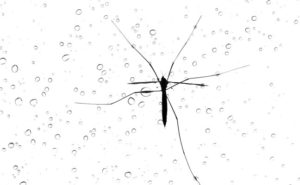It’s disgusting and insane. They always bite me during their breeding season. I have covered myself as much as possible, but they are masters at finding skin to bite. Sometimes, I think they have vowed to destroy my chance to enjoy spring or the monsoon season.
This reaction is not unusual.
According to medical entomologist Dr. Jonathan Day, lab studies suggest 20 percent of the human population are considered high mosquito attractor types. Let’s put some facts on the table about why mosquitoes are attracted to that 20 percent.
First things first: Why do mosquitoes bite? Aren’t they vegan?
No. Only males eat plants, while females need human blood to reproduce. The females need some proteins to strengthen themselves for egg-laying. These proteins are abundant in human blood.
If they need human blood, then they should only be concerned about obtaining blood and not honing in on just 20 percent of human beings, right? Well, it’s a matter of food choice. Just like humans, mosquitoes are also taste conscious. To put it one way, they prefer hot, salty food, seasoned with earwax. Let’s shed some light on their food standards:
Carbon dioxide (CO2)
CO2 is a telltale sign of a human’s presence. Mosquitoes have CO2 detectors (i.e., maxillary palps) to detect who produces more CO2. The more CO2 you produce, the yummier mosquitoes find you.
In human bodies, earwax contains a lot of CO2. That’s why you often feel mosquitoes buzzing around your ears. This buzzing allows them to detect CO2.
People who have high metabolic rates exhale more CO2 than those who have normal rates. Generally, pregnant women, older people and gym-goers have higher metabolic rates. A pregnant woman exhales 21 percent more CO2 than a non-pregnant woman.
Uric acid and ammonia
Mosquitoes like uric acid and ammonia, which is produced by microorganisms on human skin. Wait — we have microbes on our skin?
Skin microbes
Yes, many microbes are present on skin, pores and hair follicles by default. Mosquitoes choose to bite us based on the strength and composition of microbes on the skin, and this presence is a reflection of what we eat, where we live and, to an extent, genetic effects.
Humans have an estimated 1 million bacteria per square centimeter of skin, and, most alarmingly, higher abundance yet lower diversity makes you more attractive to mosquitoes.
Body odor
The volatile organic compounds in body odor attract mosquitoes and set the scale of your deliciousness.
Technically, body odor mostly consists of lactic acid, one of the most significant attractants for mosquitoes.
Body temperature
A hotter body temperature than average (97.8°F to 99°F) attracts mosquitoes.
Mosquitoes use body heat to measure how easy it would be to get blood out of the body because, in a hot body, blood is closest to the skin surface, Dr. Day says.
So, to provide one example taking into account all attractants: While working out, body temperature rises and so does metabolic rate. During metabolism, we produce more and more CO2 as we break down the molecules in our food and exhale. As a rule of chemistry, breakage of molecules produces heat, ultimately raising the temperature of the body. Nature gifted us the ability to sweat to normalize our temperature and metabolism, resulting in body odor. What will happen next? All of these factors whip up a delicious meal for mosquitoes.
Dress color
It is an old-wives saying that dark colors like black attract mosquitoes. And, in my opinion, it’s true, as dark colors like black absorb more light, which creates heat, raises body temperature and forces the blood to the surface of the skin, making you more favorable to mosquitoes.
Blood group

Ayesha Azam
O blood types are most attractive for mosquitoes. There is no scientific reason found yet, but according to a 2004 study by The Institute of Pest Control Technology, researchers observed that mosquitoes land on O blood types 83.3 percent of the time, while they land on A blood types just 46.5 percent of the time.
So, if you belong to the former group, then you will likely be bitten no matter how much you take care of the above-mentioned reasons. Nevertheless, these measures may reduce the frequency of bites.
Ayesha Azam is entomologist for Urban Pest Management Pakistan. She helped launch the Pakistan Professional Women in Pest Management (PPWIPM) chapter.

Well written, informative article. Thank you for doing hard work to give us this good, knowledgeable piece.
Really, this article carries huge information about mosquitoes. Scientifically, this article covered all the behaviour of mosquitoes — anyone who wants to know about mosquito behaviour, he or she must be benefited by this young lady. She did so much hard work to assemble this data. The data presentation skills are also fabulous. The way you chose to present data is nice, good and attractive. I really like your way of presentation.